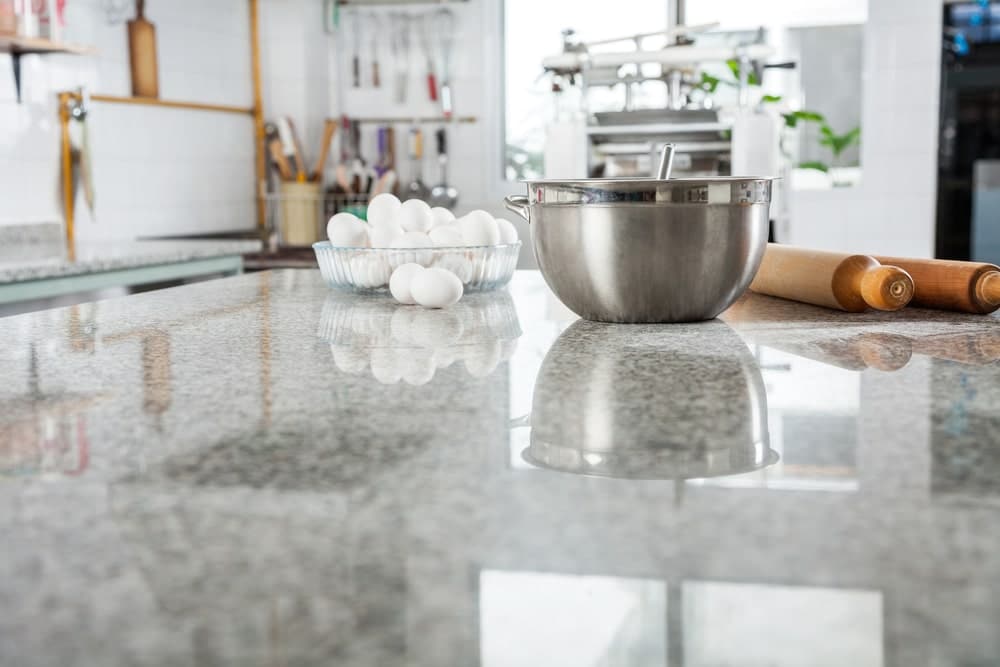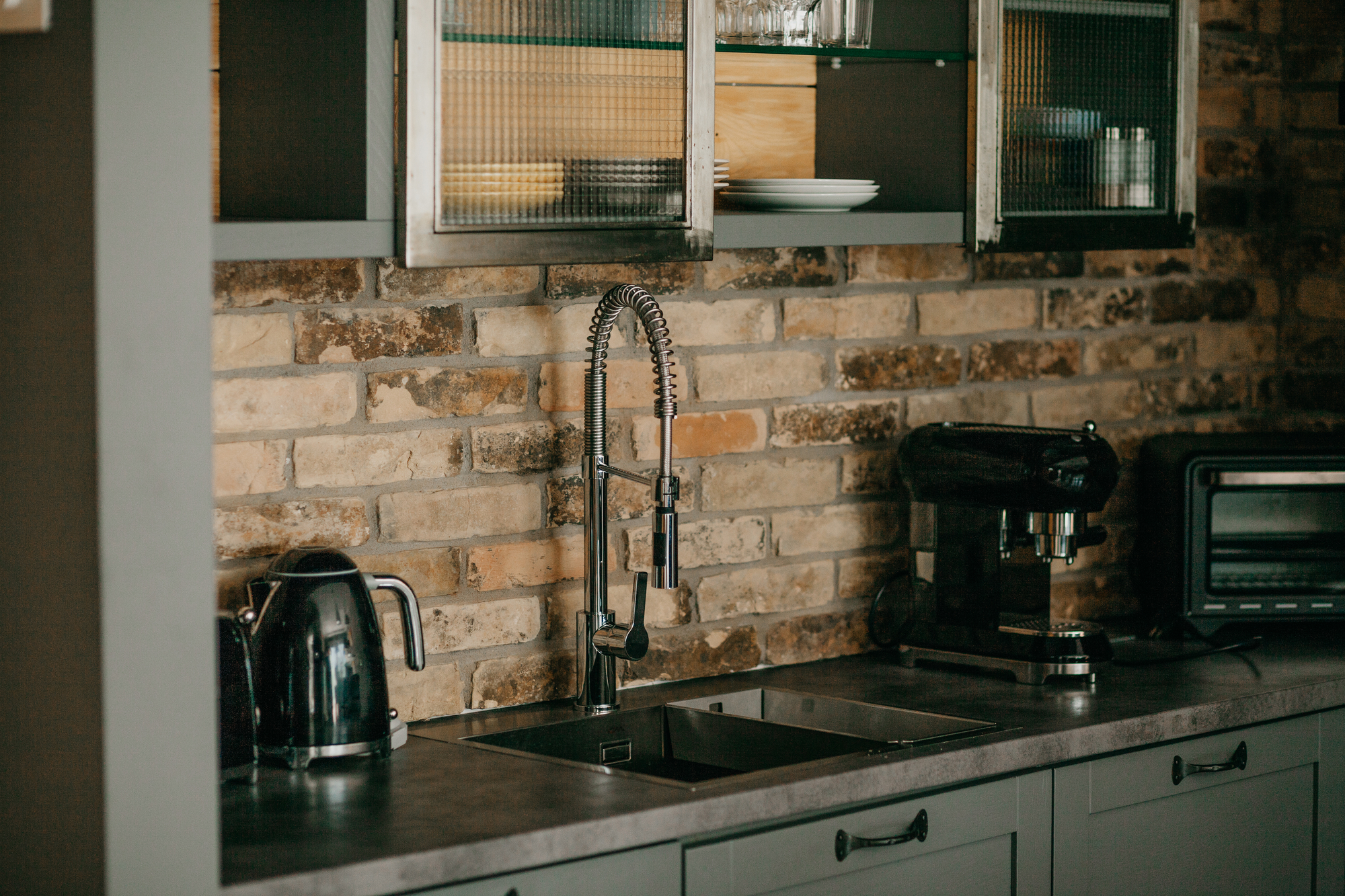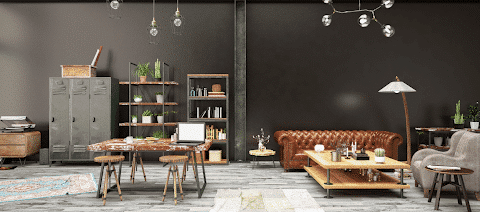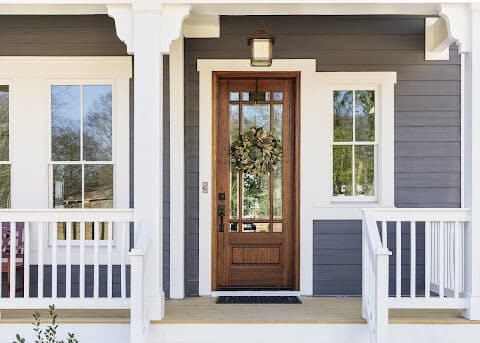Your kitchen is often called the heart of the home, so it makes sense that you’d want it to reflect your style and meet your family’s needs. The countertops you choose will be one of the most visible and used elements of your kitchen, so selecting the right material requires careful consideration of factors like durability, maintenance, appearance, and cost.
Your Guide to Choosing Countertops
Countertops can significantly influence the aesthetic and function of your kitchen or bathroom. They serve as workstations while tying the space’s design aspects together. With a multitude of countertop materials, colors, and designs available, choosing the right one can seem daunting. This countertop selection guide will ensure a well-informed decision-making process.
Evaluate Your Needs: Lifestyle, Usage, and Budget
It’s essential to consider your lifestyle, usage, and budget before making a countertop decision. If your kitchen is the heart of numerous family gatherings or cookouts, opt for materials that resist stains and withstand heat like premium natural quartz or granite slab. For those on a budget, consider affordable options like the laminate countertop or solid wood like butcher block.
Exploring Different Material Options
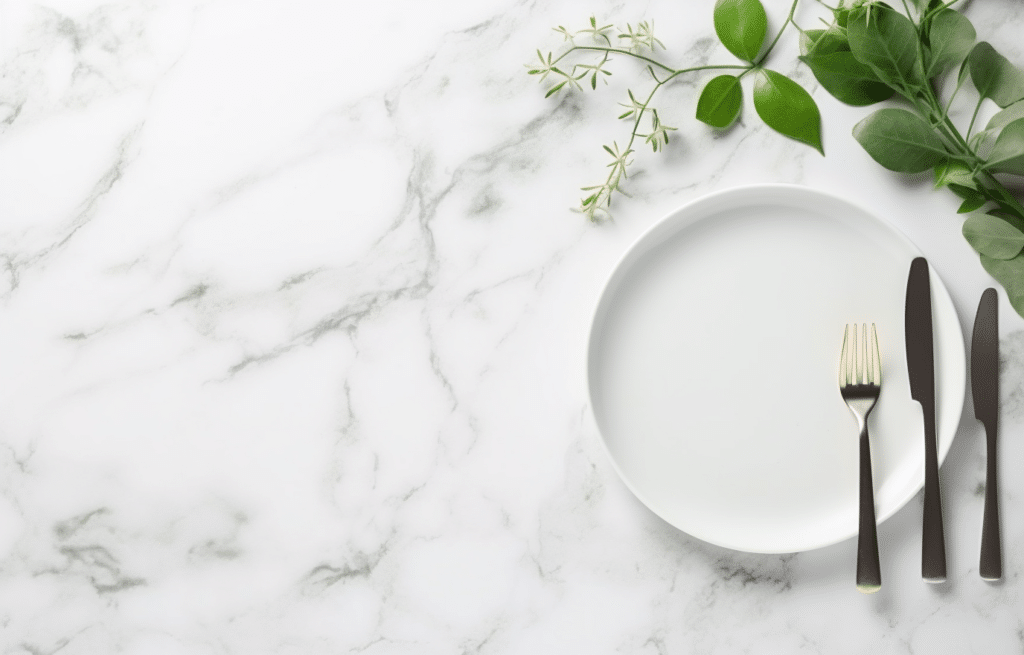 The kitchen countertop material you choose can influence your kitchen’s functionality and aesthetic appeal. Natural stone countertops such as granite slabs and marble countertops are premium choices known for their durability and unique patterns. Engineered stone-like quartz countertops combine the best of natural stones and synthetic materials, offering a great balance of beauty and function. Laminate countertops and solid surface countertops provide an affordable and DIY friendly option. If you’re looking for an eco-friendly choice, recycled glass and reclaimed wood are great options too.
The kitchen countertop material you choose can influence your kitchen’s functionality and aesthetic appeal. Natural stone countertops such as granite slabs and marble countertops are premium choices known for their durability and unique patterns. Engineered stone-like quartz countertops combine the best of natural stones and synthetic materials, offering a great balance of beauty and function. Laminate countertops and solid surface countertops provide an affordable and DIY friendly option. If you’re looking for an eco-friendly choice, recycled glass and reclaimed wood are great options too.
Choosing the Right Color and Texture to Suit Your Space
Countertop color can make or break your kitchen’s appearance. Classic stainless steel or a solid slab of neutral colors like white or gray pair well with most kitchen types. For a warm, rustic feel, a solid wood countertop or a stone countertop with earthy tones works well.
Different Types of Countertops
Common countertop types include solid slabs, solid surface, ceramic tile, natural stone, engineered stone, laminate, recycled and prefabricated countertops. Each type offers a range of aesthetics and functionalities, ensuring there’s a countertop for every need and style.
Kitchen Countertops
Kitchen countertops go through a lot – daily meal prep, occasional spills, and heat from cooking. Therefore, countertop materials that are resistant to scratches, heat, and stains are ideal. Granite countertops are a popular choice for their durability and unique natural patterns, while quartz countertops are loved for their easy maintenance and wide range of design options. For an affordable option, consider laminate countertops or a solid surface countertop.
Vanity Countertops
While the kitchen is one of the central parts of your home, it’s equally important to choose quality vanity countertops. Vanity countertops get exposed to water, cosmetics, and cleaning products daily. Therefore, they need to resist stains and be easy to clean. Porcelain slabs and quartz countertops are suitable options due to their durability, non-porous nature, and ease of maintenance. While material choice is crucial, remember to consider the color and texture to match your bathroom’s vibe. A venetian marble can add an air of timelessness to a classic bathroom design, while a unique glass countertop can give a touch of modernity.
Whichever countertop you choose, always use mild soap to clean, and avoid using abrasive cleaners or scouring pads. Wipe down spills immediately to prevent staining. Consider the services of custom countertop designers if you desire something more personalized, or explore options of prefab stone countertops for a quick remodel. Above all, ensure you choose a countertop that reflects your personal style and meets your day-to-day needs.
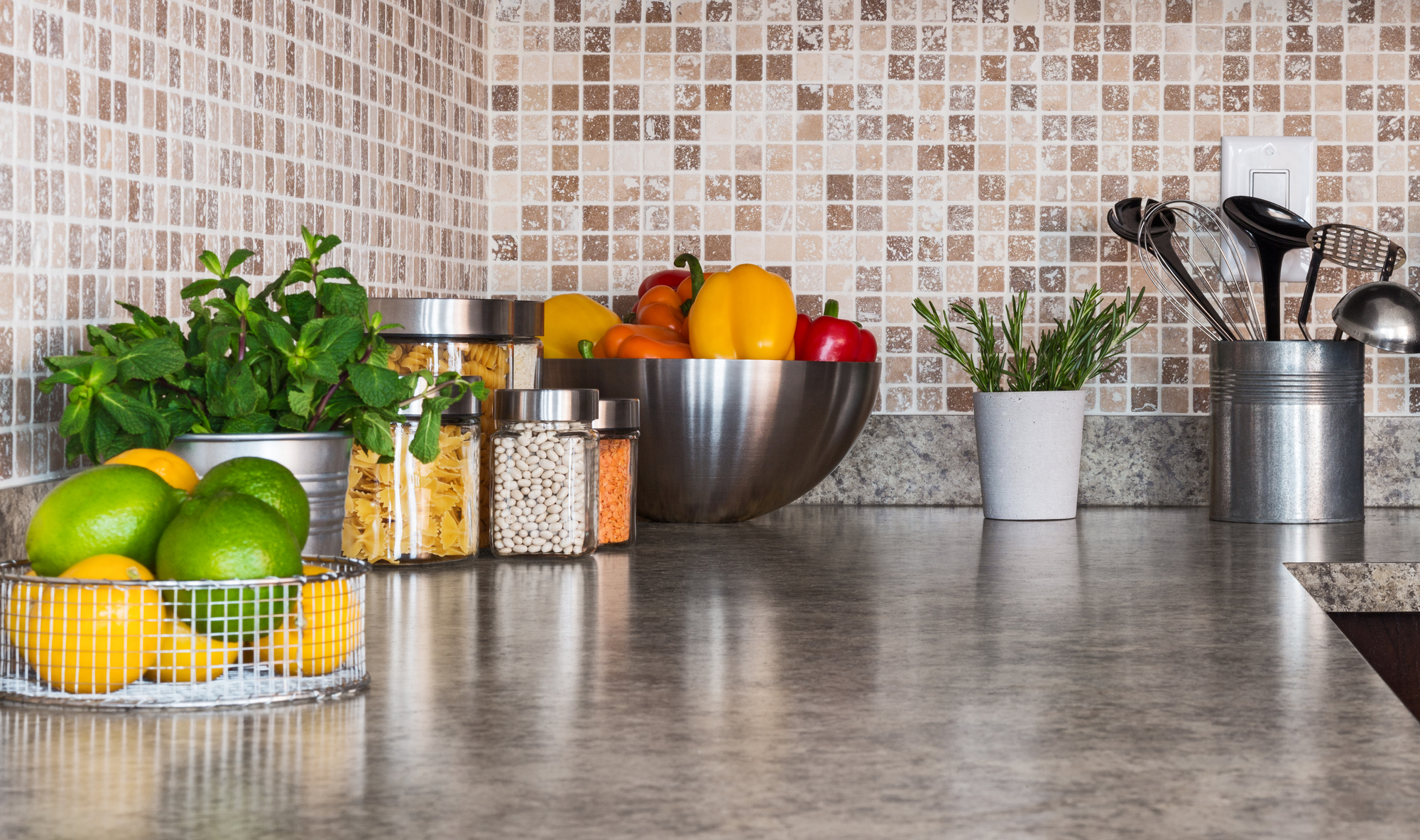
Factors to Consider when Choosing Countertop Materials
Choosing the appropriate kitchen countertop necessitates an in-depth understanding of the many countertop materials available. Here, we will delve into various factors that one should consider while making a countertop selection: durability and maintenance, cost and value for money, and compatibility with home décor style.
Durability and Maintenance
One of the foremost factors to consider is the durability of the material. Stainless steel, for instance, resists stains and scratches and requires minimal maintenance. On the other hand, natural stone countertops like marble countertops require extra care to prevent pitting and staining.
Avoid abrasive cleaners and scouring pads which may damage the surface. Instead, use a mild soap and a soft cloth for regular cleaning. Always wipe spills immediately to prevent permanent stains.
Quartz countertops, whether it’s a granite slab or premium natural quartz, offer a balance between durability and maintenance requirements. Some materials, such as solid slab and ceramic tile, may be more suitable for DIYers, while others like solid surface countertops offer more durability.
Cost and Value for Money
Countertop materials like veneer laminate countertops or solid slabs like stainless steel, recycled glass, and engineered stone vary in price range. Full custom countertops or prefabricated countertops, which include specialist materials like Venetian marble, porcelain slabs, or premium natural quartz, can be a bit heavy on the pocket.
Take into consideration countertop materials like butcher block and reclaimed wood for budget-friendly options, as well as solid wood options which offer more value for the money.
Compatibility with the Home Décor Style
Your choice of countertop material should enhance the overall aesthetic of your house. For a rustic charm, opt for a beautiful butcher block countertop or reclaimed wood countertop. For a more elegant and contemporary look, engineered stone or marble countertops might be a better choice.
Stainless steel countertops or solid surface countertops deliver a sleek look that suits a modern décor style. For a more versatile option, quartz countertops with their variety of colors and patterns can adapt to various décor styles.
Installation Process of Countertops
Whether you’re a seasoned DIY enthusiast or you’d rather use the free design services of expert design professionals, understanding the installation process is key.
Installation Steps for Different Types of Countertops
Installing countertops can be a tricky process that requires careful planning and preparation. The type of material you select will determine the specific installation steps.
For laminate countertops, ensure the base cabinets are level, fully adhere the laminate using contact cement, and use a router with a flush trim bit for a clean edge. Tile countertops require a cement board substrate, proper thinset application, and careful grouting technique. Granite and other natural stones need strong base support, silicone adhesive, and sealant application after installation. Solid surface acrylic countertops should be installed similarly to laminate using adhesive and a flush trim. Always follow manufacturer instructions for best results. Proper installation is key to maximizing durability and aesthetics of any countertop.
Hiring a Professional vs. DIY Installation
When it comes to installing kitchen countertops, two primary routes exist: hiring expert design professionals or rolling up your sleeves for a DIY option. Both pathways come with their advantages and disadvantages, which means it’s essential to consider your individual needs, budget, time, and skills before making a decision.
Pros and Cons of Professional Installation
Hiring a professional to install new countertops has advantages and disadvantages. On the plus side, professionals have the skills, tools, and experience to properly measure, cut, prepare, and install countertops so they fit correctly and are level. This can help ensure a quality installation and reduce the risk of damage to the countertops. Professionals also know how to make seams and edges look seamless.
On the downside, professional installation can be more expensive than doing it yourself. The total project cost will be higher to cover the labor. There is also less flexibility with scheduling as you have to accommodate the installer’s availability. Some homeowners enjoy taking on DIY projects and feel capable of properly installing countertops on their own. The decision depends on the homeowner’s budget, skills, and time available for the project.
Pros and Cons of DIY Countertop Installation
DIY countertop installation can be cost-effective and provide a certain level of satisfaction and accomplishment. It’s a chance to tailor the project according to personal tastes, including custom countertop designs or utilizing unique materials such as reclaimed wood or a butcher block.
However, it’s essential to understand that not all countertop materials are DIY-friendly. For instance, heavy materials such as granite slab or engineered stones are difficult to handle without professional equipment. Also, specific procedures demand keen expertise – from sealing natural stone countertops to creating a prefab stone countertop.
Tips for Caring for and Maintaining Your Countertops
Regardless of whether you opted for a professional or DIY installation, maintaining and caring for your kitchen countertop is crucial to ensure its longevity. The process differs significantly depending on the material of your countertop.
Basic Care and Cleaning Instructions for Different Materials
Mild soap, water, and a soft cloth are generally enough to keep the countertop clean. For premium natural quartz, marble countertops, and other natural stones, avoid using abrasive cleaners and scouring pads, as they can scratch the surface. In the case of solid surface countertops like laminate countertops or solid slabs, it’s important to clean spills immediately to prevent staining.
Common Countertop Problems and How to Fix Them
Despite your best efforts, issues may arise with your countertops. Scratching and staining are common on solid surfaces and stone countertops, particularly when they are not appropriately sealed. In such cases, calling for professional repairs may be necessary. On the other hand, DIY fixes can be done using resources like a countertop selection guide or DIY repair kits available in the market.
Ensuring Longevity: Best Practices for Counter Care
To minimize the chance of scratches and stains, use cutting boards instead of cutting directly on the countertop. Despite the hardness of natural stones, direct cutting can lead to scratches. Avoid placing hot pots or pans directly on the surface to prevent burn marks or thermal shock, especially for engineered stone, porcelain slabs, Venetian marble, and other delicate materials.
Remember, the key to long-lasting and aesthetically pleasing countertops lies not just in the installation process but also in the regular, appropriate care and maintenance.
Look to High Performance Home for Expert Home Component Recommendations
Get the kitchen or bathroom of your dreams by having the experts at High Performance Home help you select the ideal countertop to match your style and needs. At High Performance Home, our mission is to connect various stakeholders in the home industry to drive value. By fostering alignment and collaboration, we seek to uplift the quality and performance of housing. Whether you’re looking for the perfect kitchen countertops or need help with a full home redesign, our team can provide expert recommendations and guidance along the way. Contact us today to get started.

